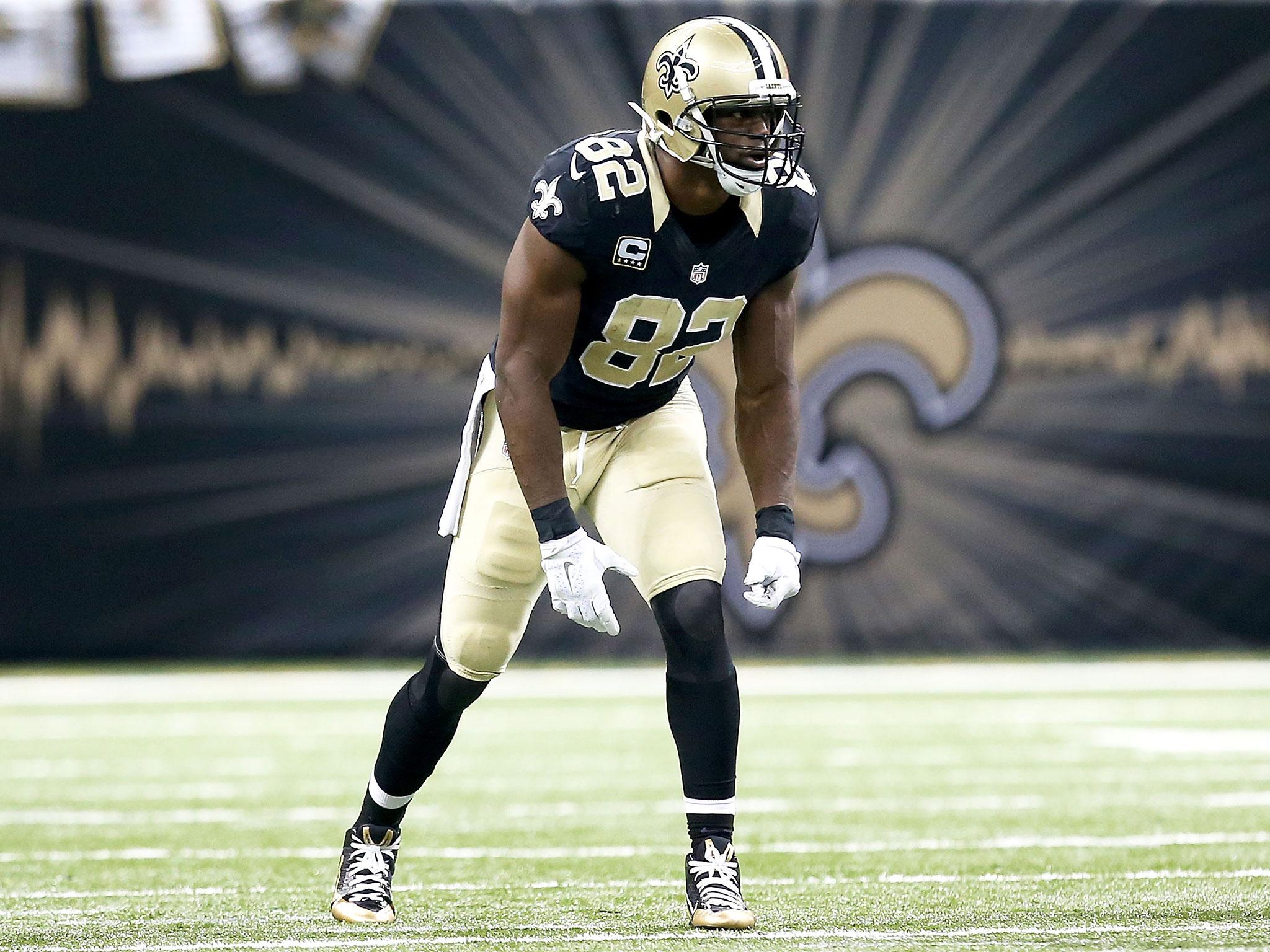'There's a better way.' How a modest NFL player has become a beacon for athlete activism in the era of Donald Trump
In the age of the Trump, Watson takes us on a journey through the myriad put-downs and pre-conceptions that are the daily reality of being a black player in a predominantly white sport

When a white, all-American NFL player from Cincinnati, Ohio, sits down to discuss why he has picked up and read a book on the black experience in America and admits he is embarrassed it has taken him so long, you wonder what the motivating factor might possibly be.
A black, all-American NFL player from Norfolk, Virginia, it transpires. Zach Strief, of the New Orleans Saints, was a team-mate of Benjamin Watson for two years and admitted recently that it was only their friendship which caused him to put aside apathy and read ‘Under our Skin,’ Watson’s part-memoir, part treatise on race - a remarkable addition to the generally forgettable literature to have emerged from occupants of the locker room or dressing room.
Dispensing with a match-by-match treatise on life as a ‘tight end’ at the Saints, the New England Patriots and Cleveland Browns, Watson takes us on a journey through the myriad put-downs and pre-conceptions that are the daily reality of being a black player in a predominantly white sport.
Like the young white drivers of the luxury Mercedes SUVs who shuttle players to and from training with hip hop music on the radio and who omit the N-word when they sing along to the lyrics. “We are in what black people call mixed company,” Watson writes. “I always wonder what the driver is thinking. I’m not naïve enough to assume they don’t recite the songs, word-for-word, when blacks aren’t present and honestly, I’m not mad at them for it. But I know there is an uneasiness when blacks are around…”
Or the assumption, when he’d left high school for Duke University on academic merit, that he must have won an athletics scholarship. He wound up producing his academic certificates for friends to see, to prove he was there on merit. “I was supposed to be good at sports,” he writes. “The black kid was always supposed to be able to run fast and jump high.”
Watson self-evidently doesn’t dance around the subject. He asked the driver to change the radio station. And he relates a conversation in which a Jewish team-mate tells him he thinks black people use the N-word to “embrace and neutralise the word.” Watson names a couple of Jewish slurs he has heard used and asked the team-mate if Jews used them among themselves to diminish their power. “No,” replies the team-mate.
The level of detail is uncomfortable because political correctness programmes us not to enter these waters, but Watson approaches things with the knowledge of what his father and grandfather went through. The latter worked at the port in Norfolk, which was the intake point for German Nazi prisoners in World War II. If his grandfather required the toilet, it could not be the one that the Nazis and white workers used.
The black and minority ethnic experience has been articulated by some in British sport, too, though generally in depictions of those days when black association footballers were running a gauntlet. Clyde Best’s memoir last year detailed the warning that acid would be thrown in his face if he played for West Ham. “I was the only black guy. It's like a fly in the milk, you know. There's nobody else.”
But Watson’s book belongs to the story of American sport’s newfound athlete activism. He and many others have identified that Barack Obama’s election as the original motivating factor, even though Watson is a fierce pro-life advocate and declared for republican candidate Ben Carson in the 2016 campaign.
The crisis in American race relations has certainly contributed, too. Watson’s Facebook post three years ago about the Ferguson riots, and a Grand Jury’s decision not to indict a police officer over the shooting of black teenager Michael Brown, elicited one million likes and was shared 400,000 times. The protest in which the San Francisco 49ers’ Colin Kaepernick figuratively rejected the national anthem, by kneeling, has proved to be an awakening for athletes. LeBron James led his Cleveland Cavaliers out against the Brooklyn Nets in a T-shirt bearing the message ‘I can’t breathe’ – the last words of Eric Garner, a harmless, unarmed, middle-aged black man who was choked to death by a policeman while five more officers watched in the New York borough of Staten Island.
There will be more athlete activism during the Donald Trump presidency. Trump’s own appreciation of how sport reaches places that politics no longer touches explains why he is making so much of his friendship with the New England Patriots quarterback Tom Brady - to Brady’s apparent discomfort.
Watson’s book is triumph of hope over despair in which he says he must make ground towards those who are white. He tells of being offended, for example, when one student in his cohort asked how he’d got onto the course they were both on.
”I was so primed to assume that a white guy in college would doubt my intelligence, just because I was black, that that was what I heard, even though it wasn’t what he had intended,” he writes. “What if more white people would come forward and say, ‘I didn’t mean to suggest…’ What if more black people could overcome their sensitivity and confess, ‘I’m sorry. I shouldn’t have taken it that way.’ It’s an example of how two people, white and black, can address what offends, what is assumed, what is judged and what can be made right.”
Subscribe to Independent Premium to bookmark this article
Want to bookmark your favourite articles and stories to read or reference later? Start your Independent Premium subscription today.

Join our commenting forum
Join thought-provoking conversations, follow other Independent readers and see their replies